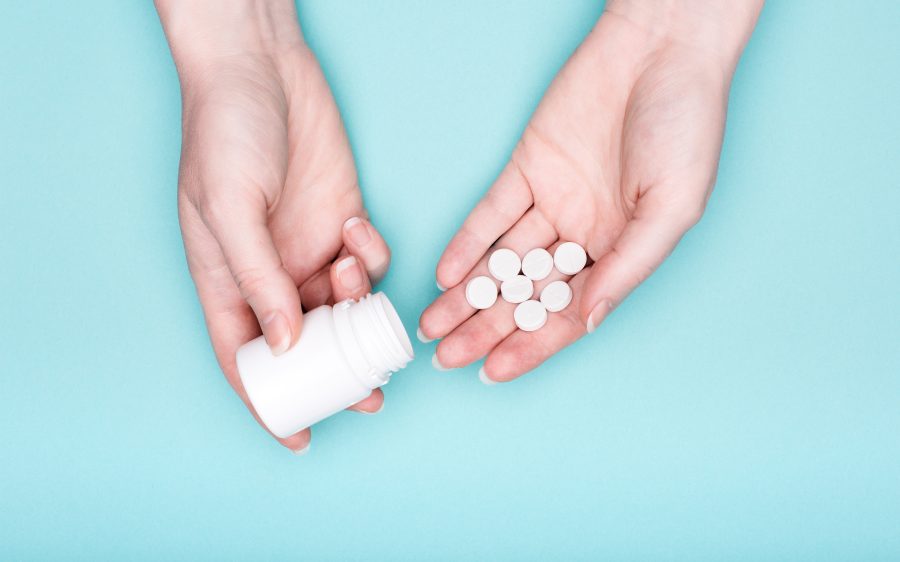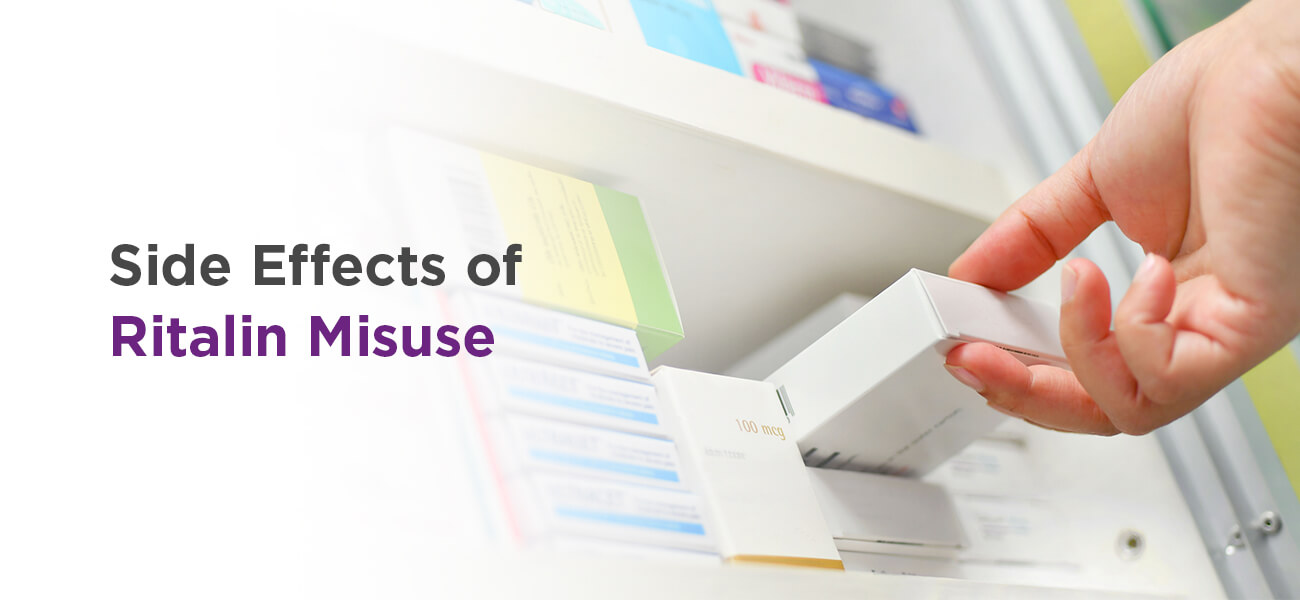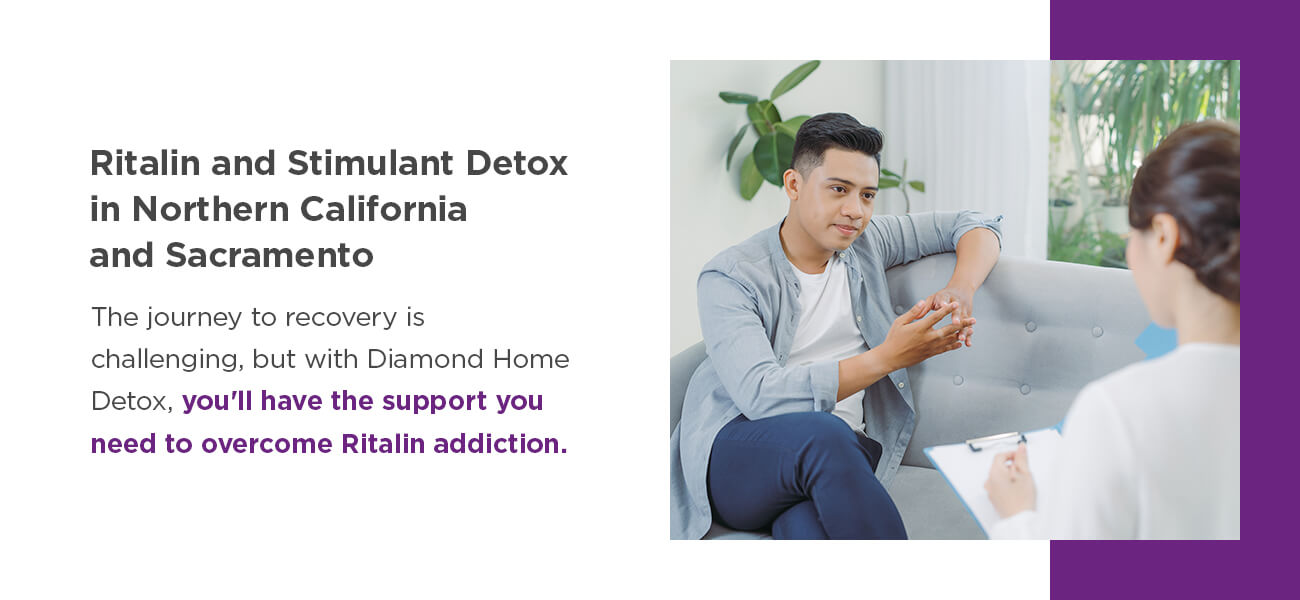

Updated July 18, 2023
Methylphenidate, more commonly known as Ritalin, is a stimulant used to increase concentration and productivity. Doctors prescribe Ritalin to help people with conditions like ADHD and narcolepsy stay more alert and focused. When taken as prescribed, Ritalin is safe and helpful for treating these conditions. However, Ritalin is a stimulant with a high potential for abuse.
Since the 1990s, the number of Ritalin prescriptions has increased significantly. In 2020 there were an estimated 15,449350 methylphenidate prescriptions dispensed in the United States. Due to its prevalence, Ritalin is easy to access for people with and without a prescription.
If you're struggling with a substance abuse problem, you're not alone. In the U.S., 9% of adults misuse prescription stimulants like Ritalin. Recovery is possible when you choose wellness with medical detoxification and rehabilitation. This guide will explain how Ritalin addiction starts and how it can end with Diamond House Detox.
Central nervous system stimulants boost specific brain chemicals, causing users to feel more energetic, attentive and alert. Ritalin is the brand name of methylphenidate, a CNS stimulant most commonly used to treat ADHD. It allows people with this condition to calm their bodies, focus their minds and lead more productive lives.
Doctors occasionally prescribe Ritalin to treat narcolepsy as well. People with narcolepsy struggle with extreme drowsiness and sudden sleep attacks. Taking Ritalin helps stimulate their brains, so they feel less tired and more alert throughout the day.
Methylphenidate starts working in about 20 to 30 minutes and typically wears off within three to five hours. The long-acting version lasts up to eight hours. When people take Ritalin as prescribed with medical supervision, it's generally safe. However, the risk of addiction significantly increases with Ritalin misuse.
High doses of Ritalin rapidly increase the level of dopamine in the brain, which makes people feel happier and more motivated. For people with ADHD, Ritalin creates a sense of relaxation and focus. People without ADHD who take Ritalin often feel enthusiastic and highly energetic. Hardworking students, professionals and athletes with and without a prescription will misuse Ritalin to achieve this intense concentration.
In 2021, 3.7 million U.S. adults misused prescription stimulants. Ritalin use is especially prevalent on college campuses, with a reported 2.4% of students using the drug. Feeling tired and stressed by life's challenges, they take Ritalin as a "study drug" to help them achieve higher productivity. Unfortunately, what starts as an occasional boost during late-night study sessions can quickly transform into Ritalin addiction.
Over time, misuse of the medication leads to Ritalin dependence. People rely on the surge of dopamine to prevent withdrawal symptoms of restlessness, depression and fatigue. As their tolerance grows, they need increasingly higher doses to achieve the same desired effects. Some users also snort, inject and mix Ritalin with other drugs, leading to life-threatening substance abuse issues.
Ritalin side effects will vary depending on how much you take, your existing health conditions and whether you take other medications. When taken correctly, methylphenidate causes minimal, easy-to-manage side effects. However, Ritalin misuse from people with and without a prescription can cause dangerous reactions. CNS stimulants affect your brain, sometimes causing worse symptoms for people with mood disorders. It's critical to speak with a medical professional before starting any medication, especially stimulants that can cause intense harmful side effects.
Misusing Ritalin can cause the following short-term side effects:
With prolonged use, Ritalin long-term side effects include:
Taking excess amounts of methylphenidate places significant strain on your body. Overdose is a constant risk of stimulant abuse. An overdose occurs when someone takes more drugs than their body can handle or flush out. This phenomenon is possible with one large dose or several small doses over a short time. How much Ritalin causes an overdose? The answer to this question will vary from one person to another.
Signs of a Ritalin overdose include:
People often think they can control their substance abuse problem until they have trouble stopping on their own. What started as a means to make life easier has started making everything seem harder. You might find yourself doing whatever it takes to get more Ritalin, sacrificing your relationships, personal values and limited resources.
Recognizing the signs of addiction is the first step toward recovery. Seek help if you or a loved one are engaging in these addictive behaviors:

Recovering from Ritalin addiction is a multi-step process that removes the drug from your system and addresses the underlying problems that may have contributed to your substance use problem. Stimulant recovery can be challenging and even uncomfortable, but with a team of compassionate medical professionals, you can break free of Ritalin addiction.
The first step on the path to recovery is undergoing medical stimulant detoxification for seven to 10 days. At Diamond House Detox, you'll receive medically assisted treatment in the luxurious comfort of our private rooms. Our home-like facilities will help you feel at ease through the rehabilitation process.
You'll also receive a comprehensive psychiatric evaluation to identify any underlying issues that may contribute to your situation. Often, people who struggle with addiction experience another mental illness at the same time. Our comprehensive treatment plans will treat both disorders simultaneously to give clients the best opportunity for success.

The journey to recovery is challenging, but with Diamond Home Detox, you'll have the support you need to overcome Ritalin addiction. Our team of experienced medical providers can adjust your medications as necessary for a truly individualized treatment plan. We provide a comfortable environment with private rooms so you can focus on healing. You'll receive assistance from our compassionate staff and fellow residents with support group meetings during and after treatment.
We're here to help you conquer addiction with lifesaving Ritalin addiction treatment. Call Diamond House Detox at (800) 205-6107 or contact us online to start your path toward a healthier and happier life.
Content medically reviewed by Vicky Magobet, PMHNP-BC, on November 19, 2021.
Linked Sources:
https://clincalc.com/DrugStats/Drugs/Methylphenidate
https://drugabusestatistics.org/
https://diamondhousedetox.com/
https://www.cancer.gov/publications/dictionaries/cancer-terms/def/cns-stimulant
https://www.ninds.nih.gov/Disorders/Patient-Caregiver-Education/Fact-Sheets/Narcolepsy-Fact-Sheet
https://www.verywellmind.com/how-long-does-it-take-for-adhd-medication-to-work-4140394
https://www.healthline.com/health/dopamine-effects#definition
https://archives.drugabuse.gov/trends-statistics/drug-alcohol-use-in-college-age-adults-in-2016
Other Sources:
https://www.ncbi.nlm.nih.gov/pmc/articles/PMC181133/
https://www.addictioncenter.com/stimulants/ritalin/
https://www.michaelshouse.com/ritalin-addiction/how-addiction-starts/
https://americanaddictioncenters.org/ritalin/use-and-abuse
https://medlineplus.gov/druginfo/meds/a682188.html
https://californiahighlands.com/stimulants/ritalin/
https://rehabs.com/blog/heres-how-ritalin-abuse-wrecks-your-body/
https://www.silverpinestreatmentcenter.com/addiction-blog/what-are-the-side-effects-of-ritalin/
https://vertavahealth.com/methylphenidate/overdose/